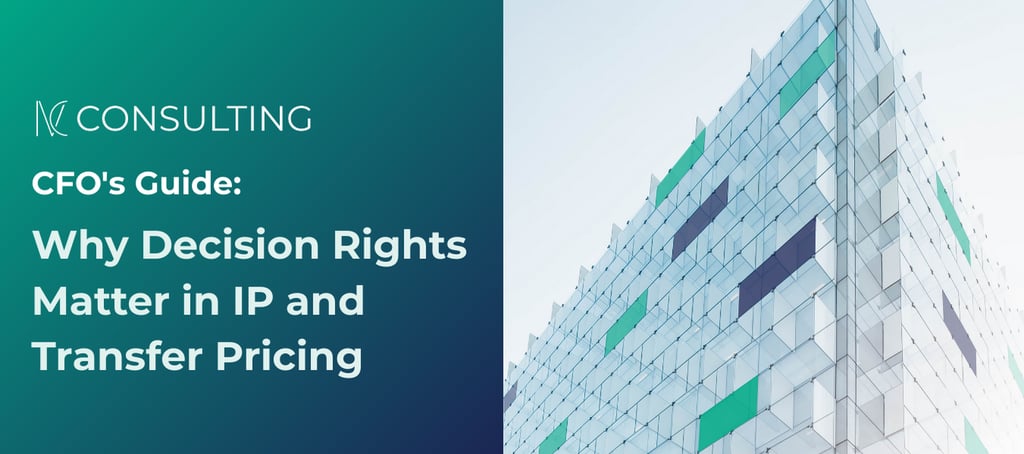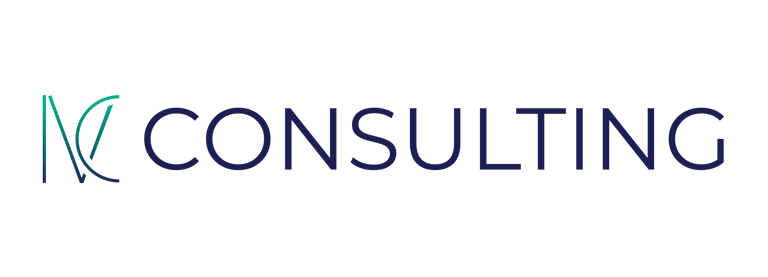Why Decision Rights Matter in IP and Transfer Pricing
When startups cross borders, their most valuable assets are rarely physical. Intellectual property drives growth, but it also attracts scrutiny. Increasingly, the question is not who owns the IP, but who controls it. For CFOs, decision rights are the foundation of defensible valuations, tax compliance, and investor confidence.
DEMPEINTERNATIONAL TAXRISK MANAGEMENT
9/12/20254 min read


The New Standard: Beyond Legal Ownership
It was once enough for an entity to legally own IP and fund its development. That assumption is no longer safe. The OECD Transfer Pricing Guidelines require profits to follow value creation, not just the name on the registration certificate. Tax authorities now probe who made strategic calls, who bore the risk, and whether the entity had the financial strength to absorb those risks. If the answers diverge from the entity claiming profits, authorities may reallocate returns, often with painful adjustments.
DEMPE Explained: The Five Pillars of IP Value Creation
The OECD uses the DEMPE framework - development, enhancement, maintenance, protection, and exploitation - to test whether profit allocations are defensible. Each function represents a decision right that tax authorities look for when judging whether an entity truly creates value.
Development is about setting the agenda for innovation. The critical question is not who paid for research but who decided what to build, where to direct budgets, and which projects to prioritize. An entity that only covers costs without steering the research path will struggle to claim more than a routine return.
Enhancement deals with improvements and upgrades. For a SaaS business, this might mean deciding which new features to release, approving a platform redesign, or reshaping the customer experience. The power to direct enhancement shows control over how the asset grows in value.
Maintenance captures the decisions that keep IP usable and relevant. Software requires bug fixes, trademarks must be renewed, and data must be cleaned. Authorities look for evidence of who controls the resources and approvals that sustain the asset’s marketability.
Protection focuses on safeguarding the IP against risk. This includes deciding whether to pursue litigation against an infringer, negotiate settlements, or adopt defensive licensing strategies. Control here signals who shoulders legal and strategic risks.
Exploitation is about commercialization. The decisive calls are around licensing terms, pricing strategies, and monetization models. These choices directly influence the profitability of intangible assets and often determine whether the entity is entitled to residual returns.
Together, the DEMPE pillars form the backbone of value creation. For CFOs, documenting control over these areas is the only way to justify profit allocation beyond a cost-plus or risk-free return.
Why Decision Rights Matter More Than Ever
For CFOs, this is not just a matter of compliance. Misalignment between ownership and control can unravel during audits, depress valuations in funding rounds, and complicate acquisitions. Investors and acquirers want to see that a startup’s intangible assets are secure and properly allocated. Weak governance or undocumented decision rights can slow negotiations, delay deals, and reduce confidence in the company’s financial story.
A CFO’s Framework for IP Profit Allocation
How can CFOs navigate this complexity and stay audit-ready? A practical framework includes five steps:
1. Map Decision-Making Structures Start by identifying who actually controls each DEMPE function. This means going beyond job titles to uncover real authority. For example, does a product team in Germany approve enhancement decisions, or does the U.S. parent retain that authority?
2. Align Contracts with Reality Intercompany agreements must mirror actual practice. If a contract states that a Singapore subsidiary controls development while decisions are really taken in California, tax authorities will reject the arrangement as inconsistent with conduct.
3. Document Control Rigorously Governance leaves a paper trail. CFOs should ensure approval workflows, budget authorizations, and board minutes are archived systematically. These records are not just box-ticking; they form the evidence needed to defend profit allocations in an audit.
4. Validate Financial Capacity Control is meaningless without capital. Entities must show balance sheets and liquidity that can absorb the risks they assume. A small subsidiary cannot credibly take on billion-dollar litigation exposure without adequate financial resources.
5. Review Structures After Business Changes Business realities evolve. Funding rounds, reorganizations, acquisitions, or new market entries can all shift who holds decision rights. Revisiting DEMPE allocations annually helps ensure governance and agreements stay aligned with operational reality.
Common Mistakes CFOs Should Avoid
Too many startups assume funding alone entitles an entity to IP returns. Others draft intercompany agreements that bear little resemblance to reality, leaving contracts easy targets for recharacterization. Some rely on informal decisions with no documentation, which collapses under audit. A recurring error is assigning risks to entities that lack the financial strength to bear them. Each of these mistakes can lead to reallocated profits, tax disputes, and valuation setbacks.
The Bigger Picture: Decision Rights as Strategic Leverage
CFOs who master decision rights do more than defend tax positions. They create resilient structures that reduce disputes, build investor trust, and demonstrate governance maturity. In an increasingly transparent tax environment, decision rights serve both as a shield against costly adjustments and as a signal of credibility to the market.
How iVC Consulting Helps
At iVC Consulting, we help CFOs operationalize OECD guidance in a way that works for both compliance and growth. Our teams map decision rights, align contracts with conduct, and embed governance processes that prove control. This ensures profit allocations are defensible and valuations hold steady during fundraising or due diligence. By integrating governance into daily operations, we enable startups and scale-ups to secure compliance, resilience, and investor confidence.
Final Thought
Decision rights are no longer a technical footnote. They are the foundation of IP profit allocation, investor trust, and international tax compliance. For CFOs, elevating decision rights to the boardroom is not optional - it is a strategic priority that can spell the difference between a funding win and a valuation setback.
2025 iVC CONSULTING
20 St Dunstan's Hill, London EC3R 8HL, United Kingdom | office@ivc-consulting.com | Privacy Policy | General Terms and Conditions
